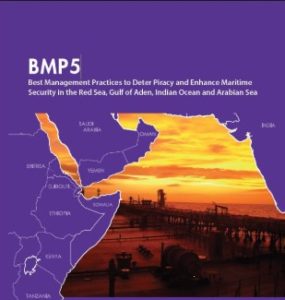The IMO Maritime Safety Committee (MSC) held its 101 session from 05 to 14 June, 2019. The key subjects are the following:
1.Adoption of amendments
– Amendments to the appendix to the annex to the 1974 SOLAS, concerning the addition of a footnote to Forms C, E and P in the Records of Equipment. (Expected entry into force: 1 January 2024)
– Amendments to chapter 15 of the International Code for Fire Safety Systems (FSS Code), relating to inert gas systems. (Expected entry into force: 1 January 2024)
– Amendments to parts A and A-1 of the International Code of Safety for Ships using Gases or other Low-flashpoint Fuels (IGF Code), including those relating to regulations on loading limit for liquefied gas fuel tanks, regulations for fuel distribution outside of machinery space, regulations for internal combustion engines of piston type and fire protection for fuel storage hold space; and amendments relating to the protection of the fuel supply for liquefied gas fuel tanks, aimed at preventing explosions. (Expected entry into force: 1 January 2024)
– Amendments to chapters IV and VI of the International Life-Saving Appliance Code (LSA Code), relating to general requirements for lifeboats and launching and embarkation appliances. (Expected entry into force: 1 January 2024)
– A comprehensive set of amendments to the International Code for the Construction and Equipment of Ships Carrying Dangerous Chemicals in Bulk (IBC Code), including the revised chapters 17 (Summary of minimum requirements), 18 (List of products to which the code does not apply), 19 (Index of Products Carried in Bulk) and 21 (Criteria for assigning carriage requirements for products subject to the IBC Code). (Expected entry into force: 1 January 2021)
– The consolidated edition of the International Maritime Solid Bulk Cargoes Code (IMSBC Code), incorporating amendment 05-19. The 2019 amendments include updates to various schedules, such as new individual schedule for Bauxite Fines as a Group A cargo, as well as editorial amendments. The amendments are incorporated into a consolidated IMSBC Code, to include all amendments to date, since the IMSBC Code was first adopted in 2008 (Expected entry into force: 1 January 2021). Amendments may be applied by Governments, in whole, or in part, on a voluntary basis from 1 January 2020)
– Amendments to the International Code on the Enhanced Programme of Inspections During Surveys of Bulk Carriers and Oil Tankers, 2011 (2011 ESP Code), to update the Code. (Entry into force: 1 January 2021)
2.Maritime Autonomous Surface Ships – Interim guidelines for MASS trials approved
The Committee approved Interim guidelines for Maritime Autonomous Surface Ships (MASS) trials.
3.Goal-based standards – revised Generic guidelines for developing IMO goal based standards approved
The MSC approved revised Generic guidelines for developing IMO goal based standards (MSC.1/ Circ.1394/Rev.2) in order to develop draft goals and functional requirements in relation to onboard lifting appliances and anchor handling winches.
4.Safety of ships in polar waters 
– The MSC approved guidance for navigation and communication equipment intended for use on ships operating in polar waters. The guidance includes recommendations on temperature and mechanical shock testing, and on how to address ice accretion and battery performance in cold temperatures.
5.Recommended interim measures to enhance the safety of ships relating to the use of oil fuel adopted
The MSC adopted a resolution providing recommended interim measures to enhance the safety of ships relating to the use of oil fuel.
6.Piracy and armed robbery against ships 
The MSC noted the latest figures on piracy and armed robbery against ships based on reports received by IMO. The MSC reminded companies, masters and seafarers to continue the diligent application of existing IMO guidance and the revised Best Management Practices (BMP) guidance as well as the new Global Counter Piracy Guidance and the updated guidance for protection against piracy and armed robbery in the Gulf of Guinea region contained in MSC.1/Circ.1601 on Revised industry counter piracy guidance.
7.E-navigation guidance approved
The MSC approved a number of circulars related to the development of e-navigation. E-navigation is defined as “the harmonized collection, integration, exchange, presentation and analysis of marine information on board and ashore by electronic means to enhance berth to berth navigation and related services for safety and security at sea and protection of the marine environment”. An updated IMO e-navigation Strategy Implementation Plan (SIP) was approved by MSC 99 in May 2018 (MSC.1/Circ.1595).
8.Domestic ferry safety put on MSC agenda
The MSC agreed to include a new item on measures to improve domestic ferry safety on its agenda for the next session (with an estimated four sessions needed to complete the work).
9.Approval of other draft amendments, guidance and guidelines
-Adopted amendments to the Safety Certificate and the Record of Equipment for the Special Purpose Ship (SPS) Safety Certificate of the Code of Safety for Special Purpose Ships (SPS Code).
-Adopted amendments to the Code for the Construction and Equipment of Ships Carrying Dangerous Chemicals in Bulk (BCH Code), to update in line with corresponding amendments to the IBC Code.
-Adopted performance standards for float-free emergency position-indicating radio beacons (EPIRBs) operating on 406 MHz which are proposed to be applicable to float-free EPIRBs operating on the frequency 406 MHz.
-Adopted new traffic separation schemes (TSSs) and associated routeing measures and of precautionary areas with recommended directions of traffic flow in the Sunda and Lombok Straits, Indonesia, to minimize the risk of collision between ships and grounding.
-Adopted amendments to the Recommendations on navigation through the English Channel and the Dover Strait (resolution A.475(XII), related to the termination of the voluntary movement ship reporting system MAREP.
-Approved amendments to update the Guidelines on annual testing of voyage data recorders (VDR) and simplified voyage data recorders (S-VDR) (MSC.1/Circ.1222), clarifying the examination of float-free capsules approved in accordance with resolution MSC.333(90).
-Approved Interim guidelines for minimizing the incidence and consequences of fires in ro-ro spaces and special category spaces of new and existing ro-ro passenger ships.
-Approved Revised Guidelines on alternative design and arrangements for SOLAS chapters II-1 and III.
-Approved, in relation to the Long-Range Identification and Tracking (LRIT) of ships, amendments to MSC.1/Circ.1376/Rev.3 on Continuity of service plan for the LRIT system and MSC.1/Circ.1259/Rev.7 on LRIT.
-Approved the IMO position on maritime radiocommunication matters for submission to the International Telecommunication Union (ITU) World Radiocommunication Conference 2019 (WRC-19), to be held in November 2019.
-Approved amendments to Maritime Safety Information (MSI)-related instruments to accommodate amendments to SOLAS adopted in 2018 (entering into force on 1January 2020), in connection to new mobile satellite services recognized by IMO to be used in the Global Maritime Distress and Safety System (GMDSS) and allow the broadcast of MSI to a defined geographical area through those newly recognized services, in addition to the existing Inmarsat services (MSI includes navigational and meteorological warnings, meteorological forecasts and other urgent safety-related messages broadcast to ships).
-Approved Interim guidance on technical requirements for Fleet Safety, a new enhanced group calling service provided by Inmarsat for use in the GMDSS in the coverage area under the Inmarsat-4 Middle East and Asia (MEAS) region satellite.
-Agreed to circulate an Interim Iridium SafetyCast service manual providing information on Iridium’s enhanced group calling service for use in the GMDSS, to be taken into account when conducting system trials and tests until a final text of the manual is approved by the Sub-Committee on Navigation, Communications and Search and Rescue (NCSR).
Source: https:// www.imo.org
Contact us to receive a professional advisory in your area of interest
